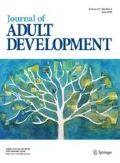Abstract
This article explores graduate students’ experiences of a self-knowledge development course that is framed by the Heroic Journey model. Through a consideration of several theorists’ perspectives and through the voices of 13 study participants, this article examines the nature of this self-study experience and its impact on participants’ lives. In light of feminist critiques of the traditional Heroic Journey model, the author pays particular attention to the experiences of women in this course. The author identifies three major findings: First, when the Heroic journey model is understood as a process and not just a theoretical construct, it gains significant power as an inclusive tool for fostering self-knowledge development. Second, self-knowledge development is not solely an individual endeavor. Self-knowledge is socially constructed through interaction with others. Third, self-knowledge development has critical spiritual dimensions, and this deeper level of knowing can lead to significant, long-lasting growth and change.
Similar content being viewed by others
Notes
Note: When I use the term “hero” in this article, I refer to both males and females. As traditionally used, the term “heroine” is just a diminutive form of “hero” and in the context of this discussion, which examines the gendered nature of the traditional heroic journey pattern, it seems demeaning and inappropriate.
References
Berne, E. (1961). Transactional analysis in psychotherapy. New York: Balantine Books.
Campbell, J. (1949). The hero with a thousand faces. Princeton, NJ: Princeton University Press.
Campbell, J., & Moyers, B. (1988). The power of myth. New York: Doubleday.
Elliot, T. S. (1962). The complete poems and plays, 1909–1950. New York: Harcourt, Brace, & World.
Freeman, M. (1993). Rewriting the self: History, memory and narrative. London: Routledge.
Gilligan, C. (1993). In a different voice: Psychological theory and women’s development. Cambridge, MA: Harvard University Press.
Harris, R., & Thompson, S. (2005). The hero’s journey: A guide to literature and life. Napa, CA: Harris Communication.
Hollis, J. (1993). The middle passage: From misery to meaning in midlife. Toronto: Inner City Books.
Indick, W. (2004). Classical heroes in modern movies: Mythological patterns of the superhero. Journal of Media Psychology, 9(3), 1–9. [electronic version].
Jordan, J. (1997). A relational perspective for understanding women’s development. In J. Jordan (Ed.), Women’s growth in diversity (pp. 9–24). New York: Guilford.
Jung, C. (1981). The archetypes and the collective unconscious (The collected works of C. G. Jung) (Vol. 9). Princeton, NJ: Princeton University Press.
Maslow, A., & Lowry, R. (Eds.). (1999). Towards a psychology of being. New York: Wiley
Murdock, M. (1990). The heroine’s journey. Boston: Shambhala.
Murray, T. (2006). Resource packet for education of self for professionals. Unpublished document. New Paltz, NY: SUNY New Paltz.
Oldfield, D. (1987). The journey: A creative approach to the necessary crises of adolescence. Washington, DC: The Foundation for Contemporary Mental Health.
Pearson, C. (1986). The hero within: Six archetypes we live by. New York: HarperCollins Publishers.
Raglan, L. (2003). The hero: A study in tradition, myth and drama. Mineola, NY: Dover Publications.
Rank, O. (2004). The myth of the birth of the hero: A psychological exploration of myth. Baltimore, MD: John Hopkins University Press.
Ray, R., & McFadden, S. (2001). The web and the quilt: Alternatives to the heroic journey toward spiritual development. Journal of Adult Development, 8(4), 201–211.
Scottish Office of Education. (2008). Curriculum for excellence: Expressive arts. Retrieved May 11, 2008, from http://www.lyscotland.org.uk/5to14/htmrevisedguidelines/Pages/ExArts/Main/exart1001.htm
Singer, J. A. (1996). The story of life: A process perspective on narrative and emotion in adult development. In C. Maggi & S. McFadden (Eds.), Handbook of emotion, adult development, and aging (pp. 443–463). San Diego: Academic Press.
Steinem, G. (1992). Revolution from within: A book of self-esteem. Boston: Little, Brown, and Company.
Weinstein, G. (1976). Education of self: A trainer’s manual. Amherst, MA: Mandalla.
Author information
Authors and Affiliations
Corresponding author
Rights and permissions
About this article
Cite this article
Murray, T. Knowing Self Through the Journey: Graduate Students’ Experiences of Self-Knowledge Development. J Adult Dev 16, 108–128 (2009). https://doi.org/10.1007/s10804-009-9065-z
Published:
Issue Date:
DOI: https://doi.org/10.1007/s10804-009-9065-z



